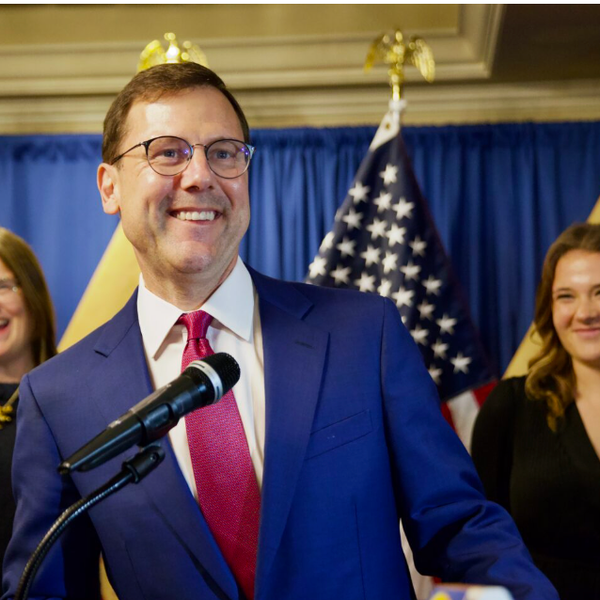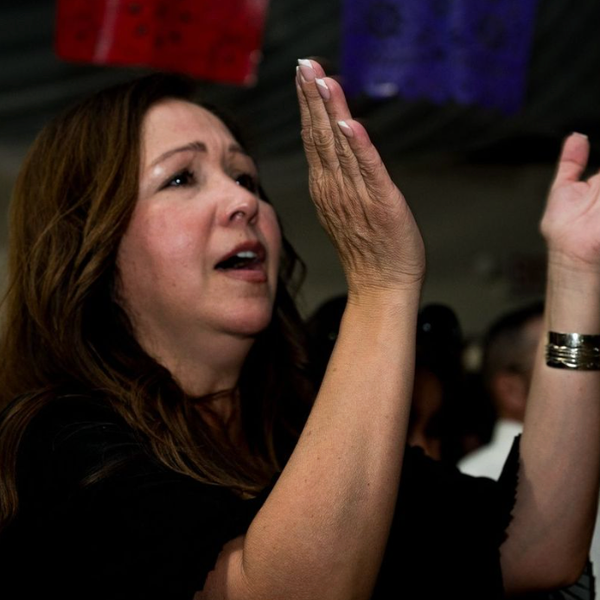
You’d be hard to find a voter in America who’s lived through a more turbulent primary season that this one: Donald Trump is at once a fascist insult comic pandering to the GOP’s far-far-right base and a defender of Planned Parenthood’s federal funding. Bernie Sanders, throwing caution to the wind, wants Trump to win, just so he can beat him up in the general election. Hillary Clinton, having steamrolled Bernie in South Carolina, is winding up the knock-out punch that will end his campaign’s shot at the candidacy. Marco Rubio is holding on for dear life, and so is Ted Cruz — but barely.
And voters are panicking: What can we do to save our country from this clown car?
For tens of thousands of people, the answer is to switch parties.
As Super Tuesday voting rolls across these United States, thousands of voters will cast their ballot for the first time as recent Republican and Democratic converts. Some are following the appeal of a magnetic outsider. Others are seemingly in it to wreak havoc: by voting for Donald Trump, who will certainly damage his party’s chances in November.
The Boston Herald reported that 16,000 Massachusetts voters have renounced their Democratic affiliation in order to be counted as independents. Six thousand Republicans did the same. In Massachusetts, which is having its primary today, voters do not need to have picked a party to vote.
Not so with Oklahoma, another Super Tuesday state: Only Republicans can vote in Oklahoma’s Republican primary, while the Democratic portion of the contest is open to both Democrats and unaffiliated voters. Over 8,300 changed their party affiliation in the state — almost 4,000 of them became Republicans. Oklahoma saw its registrations surge by almost 30,000 between Jan. 15 and Feb. 5, the last day voters in the state could register before today’s primary.
Oklahoma is far from the only state that has seen the number of voter registrations skyrocket. Alabama, one of several southern states in the Super Tuesday crop, is anticipating a bumper turnout — Secretary of State John Merill told AL.com that his office is looking at “anywhere between 34 percent and 42 percent of the state’s more than 3 million registered voters.”
Some responsibility for these numbers lies with Donald Trump – he’s galvanized new voters and inspired thousands to switch parties. At least, that’s what Massachusetts Secretary of State William Galvin credits for today’s potentially record turnout. The state’s Democratic executive director Matt Fenlon, meanwhile, cites The Trump Effect for getting Republicans to the polls to vote for anyone in the party except the New York billionaire.
Florida, which holds its closed primary March 15, has already seen several thousand voters switch party affiliation. In Miami-Dade county, the state’s most populous, 9,268 people changed their parties.
In Ohio, one representative introduced a bill which would prevent voters from changing their affiliation within 30 days of a primary election, in addition to parties allowing new members to register within that time frame. It’s meant, in Rep. John Becker’s words to Cleveland.com, to thwart off “shenanigans” — efforts to derail a candidate or prop up another. He was referring specifically to a campaign by Rush Limbaugh in 2008 that was intended to eliminate Barack Obama from winning Ohio — which had a detrimental effect in that state, among others.
As the tallies trickle out tonight and in the coming weeks, we’ll see what really drove thousands of people to switch parties: Are they really there for Trump — or there to stop him?
Photo: Virginia voters line up early to cast their ballots in Super Tuesday elections at the Wilson School in Arlington, Virginia March 1, 2016. REUTERS/Gary Cameron








